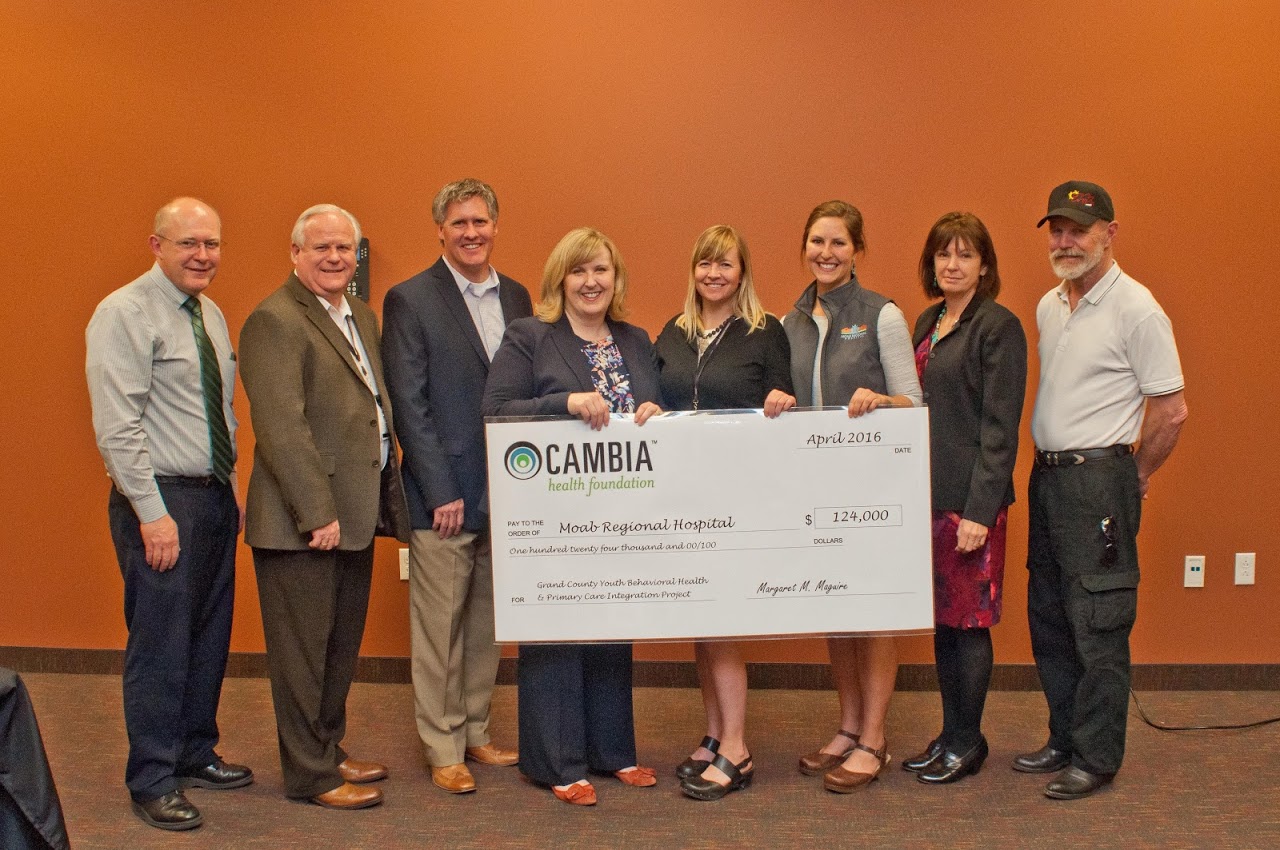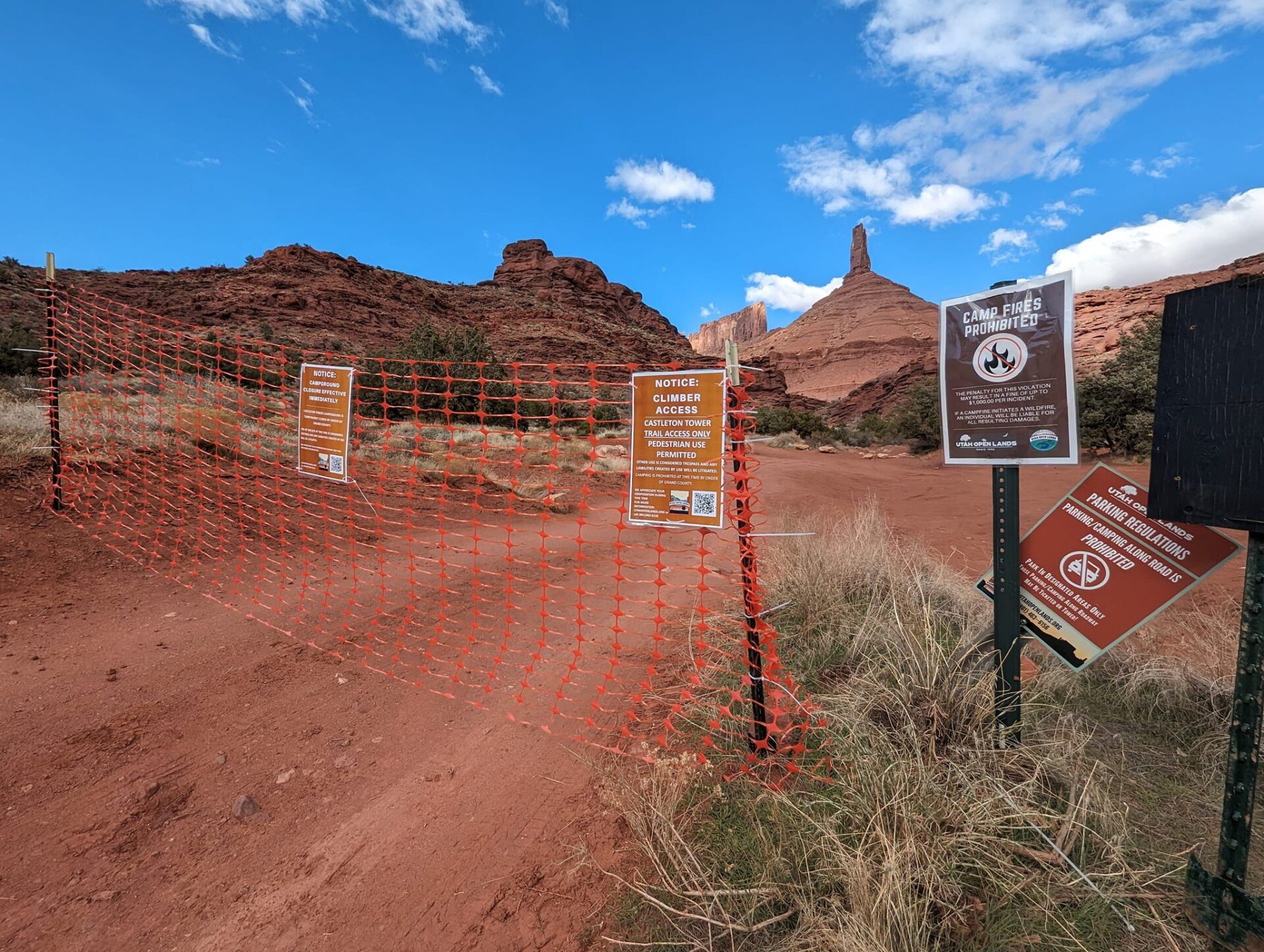For many young people in rural America, it’s often hard to find reliable access to mental health care services. But a new Moab Regional Hospital initiative aims to connect local kids and teenagers who may be struggling with mental health issues such as depression or anxiety to the resources they need.
Thanks to a $124,000 grant from the nonprofit Cambia Health Foundation, Moab Regional Hospital is launching a project that’s designed to streamline the behavioral health care and primary care services it offers its pediatric patients.
Over the next two years, the hospital will roll out the Grand County Youth Behavioral Health & Primary Care Integration Project to help primary care physicians and medical staffers better identify at-risk children and teens.
Like many other medical facilities across the country, the hospital is already screening its younger patients for behavioral health concerns. However, Moab Regional Hospital Director of Marketing and Community Relations Sarah Shea said hospital officials hope to improve their system by eventually moving to a more efficient electronic screening platform that profiles each of the kids they treat.
“After two years, every single pediatric patient who comes in to the hospital for an annual wellness check will do this screening,” Shea said. “That is the goal.”
The grant funding will also help the hospital set up a new clinic care manager position. Once that licensed clinical therapist or counselor is in place, primary care physicians at Moab Regional Hospital and Moab Family Medicine will be able to consult with him or her during their patients’ visits. In doing so, they’ll be able to offer their pediatric patients immediate support, Shea said.
“We know that primary care physicians in rural areas are oftentimes a priority resource for patients that have behavioral health issues,” Shea said.
Hospital physicians and medical staff will also receive trauma-sensitive care training about how to support and direct care for patients who experience trauma at a young age.
Shea said that the hospital developed the project in response to a 2013 Utah Student Health and Risk Prevention (SHARP) survey of students in the Grand County School District.
The survey found that just over one in five Grand County students reported a need for mental health treatment, while 18 percent of students responded that they had seriously considered suicide. Both percentages were higher than the state’s averages.
The survey also suggested that Grand County students had high scores in two risk-factor categories involving antisocial behavior, as well as favorable attitudes toward drug use. Individuals who struggle with mental health issues are more likely to abuse drugs and alcohol, and are also at a higher risk for developing chronic illnesses later in life.
While the hospital submitted its grant application to the Cambia Health Foundation before the results from the most recent 2015 survey became available, Shea said the local data haven’t changed much.
“I would say that many of the numbers are consistent,” she said.
The project grew out of a conversation that Moab Regional Hospital CEO Jen Sadoff had with Regence BlueCross BlueShield of Utah President Jennifer Danielson.
Danielson, who also serves on the Cambia Health Foundation’s Board of Directors, told Sadoff all about the foundation’s work, and encouraged the hospital to apply for a grant to fund the project.
“It dovetailed perfectly with the goals of the Cambia Health Foundation,” Shea said.
Danielson said the Portland, Oregon-based nonprofit was happy to help.
“The Cambia Health Foundation is pleased to support efforts that offer accessible behavioral health support to young people,” she said. “This work is in the best interest of our kids, their families and our communities.”
Sadoff said the hospital is “deeply grateful” to the foundation for partnering up on the initiative, which ultimately aims to use technology, collaborative care and evidence-based education to foster a community attitude that is proactive, supportive and in the best interests of children’s health.
“The surveys and data from our community paint a dim picture of the risk factors our children face, one of them being lack of access to mental health services to treat trauma and depression,” she said. “The consequences are increased suicide ideation, drug use and anti-social behavior, resulting in short- and long-term health risks.”
Rural communities struggle to successfully provide effective mental and behavioral health services because of the stigma that surrounds treatment – a struggle that Moab Regional Hospital is working to overcome, Sadoff said.
“By integrating mental and behavioral health services into the primary care setting, it increases access to services and promotes the normalization of mental and behavioral health as a foundational part of wellness,” she said.
Cambia Health Foundation gives $124K to project
After two years, every single pediatric patient who comes in to the hospital for an annual wellness check will do this screening … That is the goal.




